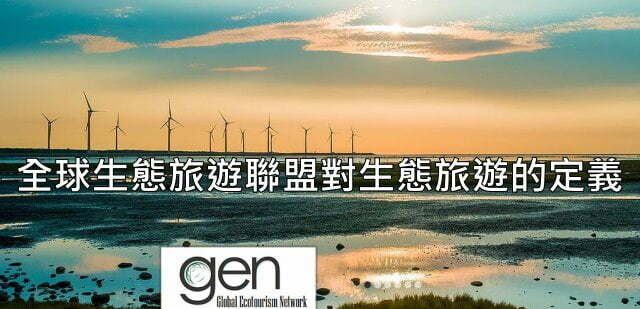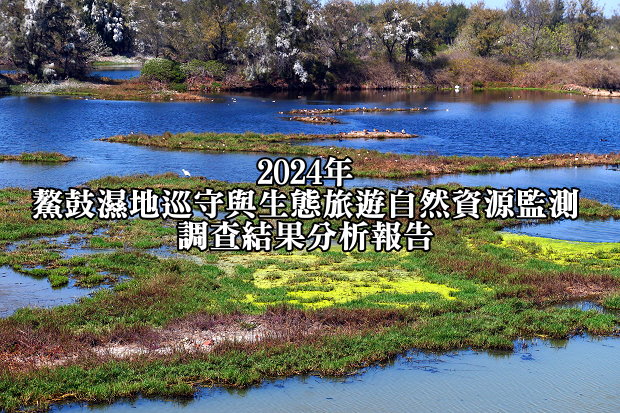
2015年國際生態旅遊學會(The International Ecotourism Society,TIES)的國際旅遊合作方案咨詢委員全部退出該計劃,另外成立全球生態旅遊聯盟(Global Ecotourism Network,GEN),他們在官網宣稱「The Global Ecotourism Network (GEN) is a new organization whose founding members are the entire ex-Advisory Committee of The International Ecotourism Society (TIES).」
10位創會理事來自於哥斯大黎加、澳洲、日本、馬來西亞、紐西蘭、加拿大、巴西、約旦、肯亞、美國的景點業主、志工組織、旅行業顧問、旅行操作者等資深專家,他們在生態旅遊的實務經驗年資合計超過300年。
The Global Ecotourism Network (GEN) was founded in 2015 by the entire former advisory committee for TIES. The founding members of GEN consist of a talented group of ecotourism professionals, who collectively hold over 300 combined years of experience in the practice of ecotourism, from all over the world.
該聯盟的任務是:串連各國或區域的生態旅遊組織、網絡、景點、原住民族、全球的旅行操作者、專家及學者們,以增進生態旅遊產業,發動倡議、引領思潮,鼓勵創新並保持生態旅遊的真實本質。
GEN’s mission is to bring together the world’s national and regional ecotourism associations and networks, destinations, indigenous peoples, global operators, professionals and academicians to grow the industry, provide advocacy and thought leadership, and to encourage innovation and authenticity in ecotourism.
我們來看看該聯盟對生態旅遊的定義,以下中文由我的好朋友張顧獻博士翻譯提供,英文原始網頁請點閱https://www.globalecotourismnetwork.org/#!about-ecotourism/cee5 :
什麼是生態旅遊?
生態旅遊是在自然地區的負責任旅遊,應包括:
- 保護環境,
- 維繫當地居民在社會和經濟方面的福祉,而且
- 通過對所有參與者(包括員工、旅客和社區居民)的解說和教育來創造知識和理解。
What is Ecotourism?
Ecotourism is responsible travel to natural areas that:
- conserves the environment,
- socially and economically sustains the well-being of the local people, and
- creates knowledge and understanding through interpretation and education of all involved (including staff, travelers, and community residents).
生態旅遊的原則
「生態旅遊」這個詞經常被用在不符合其定義和基本原則的旅遊活動。
Principles of Ecotourism
The label ecotourism is often applied to tourism activities that fail to meet the definition and the basic principles behind it.
生態旅遊應該是:
- 非消耗性/非壓榨性
- 創造生態良知
- 秉持以生態為中心的價值觀和與自然共存共榮的倫理觀念
- 對旅客及在地居民是雙贏的局面
Ecotourism is:
- non-consumptive/non-extractive
- creates an ecological conscience
- hold eco-centric values and ethics in relation to nature
- good for both visitors and visited
生態旅遊並非:
- 狩獵旅遊
- 大眾自然旅遊
- 只停留在環保飯店或「生態度假村」的層次
Ecotourism is not:
- hunting tourism
- mass nature tourism
- only staying at a sustainable hotel or “eco-resort”
一些狩獵旅遊用品商家聲稱會對生態保育與當地社區有所貢獻,然而,他們的做法並不符合非消耗性/非壓榨性的原則,而且缺乏與自然共存共榮的倫理關係。
Some hunting tourism outfitters claim to be contributing to conservation and local communities, however they fail to meet the principles of being non-consumptive / non-extractive and lack an ethical relationship with nature.
此外,在新聞輿論中已經提出許多這方面的思索,也就是生態旅遊將野生動物置於險地,因為牠們已經習慣了人類的出現而改變天性,並增加牠們被(掠食者)掠食的風險。對全球生態旅遊聯盟而言,生態旅遊和大眾自然旅遊有很大的差別。大眾自然旅遊的重點是享受在自然野地觀賞野生動物的樂趣,其與生態旅遊不同的是,這些行程對遊客而言可能不具備教育的成分,對環境可能不是永續或負責任的利用態度,而且當地社區也可能得不到經濟利益。
Additionally, there has been much speculation in the press that ecotourism puts wildlife in danger because they become used to the presence of man thereby changing their instincts and increasing their risk of being eaten. To GEN, there is a big difference between ecotourism and mass nature tourism. Mass nature tourism focuses on enjoying wildlife in their natural habitat. The difference with ecotourism is that these trips may not have an educational component to them, may not be environmentally sustainable or responsible, and may not economically benefit the host community.
最後,在大型飯店和度假村的永續環境作為都值得高度讚揚且令人滿意。然而,「永續」和「生態」的標章並不總是與正宗的生態旅遊體驗劃上等號。雖然「生態度假村」可能使用良好的環保措施進行管理,但其場地和建築物卻有可能對當地環境及鄰近社區造成負面影響。我們再次強調很重要的一點,那就是旅遊活動應提供導覽解說和教育方案以增加客人體驗的豐富性及提升員工和當地社區的相關知識。
Lastly, sustainable practices at large hotels and resorts are highly commendable and desirable. However, the sustainable or eco label is not always synonymous with an authentic ecotourism experience. Though the “eco resort” might be operated using good environmental practices, the actual site and construction of the hotel might have had a negative impact on the local environment and the surrounding community. Again, it is essential that tourism activities offer interpretative experiences and education programs to enrich the guests’ experience and to enhance the knowledge of the staff and local community.
生態旅遊面對的議題:
- 回歸自然的生態度假村
- 以社區為基礎的旅遊行程
- 動物福利
- 生態度假村的生存維繫
- 認證
- 解說
- 高階及低階科技
- 社會、經濟、環境的底線
- 在地採購
- 供應鏈責任
- 水資源保育
- 碳足跡
- 資料的公開易得
- 「漂綠」
- 綠色(環保)科技
Current Issues in Ecotourism
- Authentic Ecolodges
- Community Based Tourism
- Animal Welfare
- Succession in Ecolodges
- Certification
- Interpretation
- High & Low Technology
- Triple Bottom Line
- Local Sourcing
- Supply Chain Accountability
- Water Conservation
- Carbon Footprint
- Availability of Data
- “Greenwashing“
- “Green” Technology
延伸閱讀:
國際生態旅遊學會對生態旅遊的定義(中英對照)-2015年新定義
韓國生態旅遊標準 Korean Ecotourism Standard 中英對照
世界自然保育聯盟世界保育大會決議強化生態旅遊標準(中英對照)
本網誌「生態旅遊或觀光遊憩」專欄相關文章









遲早要分出來的,堅持生態旅遊的實質內涵
出去玩也要隨時注意維護生態及力行環保作為,以後子女才有好山好水可以玩!
臺灣許多行業都敗給想要“無償”取得,認為“政府”應該“大有為”。
大哥說得是,這10多年花了很多金錢和時間投入生態知識的補充,證照的認證,現在看來有點傻,完全不符合成本,無法靠這個維生XDD
那是政府教壞民眾來的,太多免費的好康讓民眾以為知識(包含導覽解說)都是免費或廉價的。
台灣要努力的空間很大,光是使用者付費就努力很久很久…